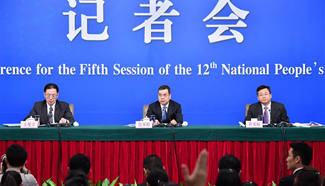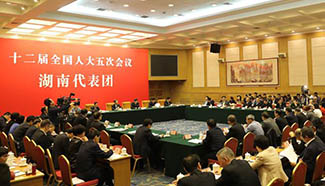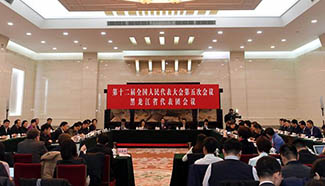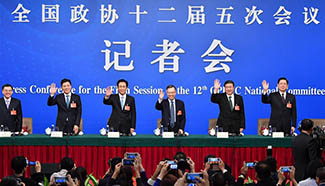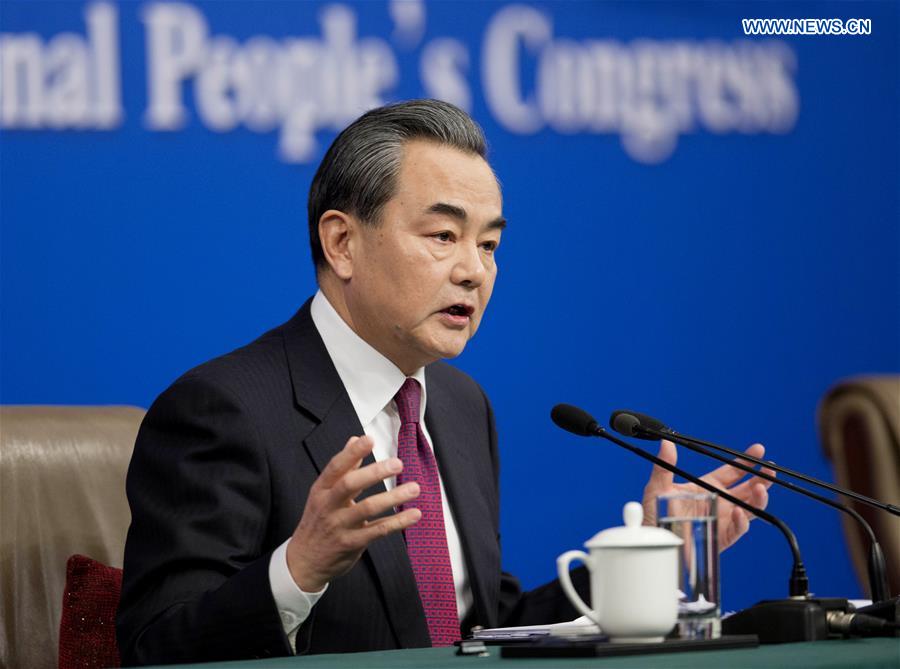
Chinese Foreign Minister Wang Yi answers questions on China's foreign policy and foreign relations at a press conference for the fifth session of the 12th National People's Congress in Beijing, capital of China, March 8, 2017. (Xinhua/Cui Xinyu)
BEIJING, March 9 (Xinhua) -- The world is watching closely whether China and the United States are able to open a new chapter of their relationship.
No one can deny how different the two countries are and how many ups and downs they have been through, but Washington and Beijing have an unprecedented opportunity to deepen their collaboration if the will is there.
As Chinese Foreign Minister Wang Yi put it on Wednesday, "As long as we act on the consensus reached between our presidents, follow the principle of no conflicts and confrontation, mutual respect and win-win cooperation, there is no reason why China and the United States cannot become excellent partners."
Wang made the remarks at a press conference on the sidelines of China's annual parliamentary session.
Last month, Chinese President Xi Jinping and his U.S. counterpart Donald Trump had a very important telephone conversation, during which they reaffirmed the importance of following the one-China principle.
They also pledged to push China-U.S. relationship to greater heights from a new starting point.
Confrontation will surely be bad for both, and win-win cooperation between the world's two largest economies will benefit the anemic global economic recovery.
Some U.S. politicians have accused China of stealing jobs from the United States, claiming that trading with China was harmful to U.S. workers.
This is simply not true.
A sound China-U.S. economic relationship is good for U.S. workers, exports and the economy in general, supporting roughly 2.6 million jobs in the United States in 2015, according to the U.S.-China Business Council (USCBC).
China and the United States have substantial stakes in nearly all of each other's important economic areas. China-U.S. trade volume grew from 2.5 billion U.S. dollars in 1979 to about 520 billion dollars in 2016, official data have shown.
Generally speaking, China and the United States occupy different stages of the global value chain. The Sino-U.S. trade deficit is overstated, if judged from the perspective of the global supply chain.
Headline figures suggest that China accounted for about half of U.S. trade deficit in 2015, but Deutsche Bank's economists have found that on a value-added basis, only 16 percent of that deficit came directly from China, slightly higher than the 13 percent which originated from Japan.
U.S. service exports to China are often overlooked when calculating the balance of trade. In this area, the United States has a surplus, not a deficit, with China.
Furthermore, the U.S. edge in service trade has huge potential to grow bigger in China as the world's fastest-growing consumer market is poised to open its service sector wider to the United States.
Jack Ma, the founder of e-commerce giant Alibaba, said earlier this year that his company would help one million U.S. small businesses sell U.S. goods on Alibaba's marketplaces. This is an example of how the two countries can work together for jobs, development and growth.
Mutually beneficial trade, investment and economic ties can deepen bilateral relations. Confrontations between the world's two largest economies have negative spillover effects and are the last thing the weak global economic recovery needs.
Many analysts have observed, Asia would suffer slower growth if the U.S. administration takes an unilateral stance that would undermine the existing global economic order.
Investment bank Nomura has projected that the Republic of Korea and Singapore were among the economies most exposed to risks while China had policy response room.
It is encouraging to see that during Chinese State Councilor Yang Jiechi's recent visit to the United States, the two countries expressed the willingness to enhance dialogues and exchanges on all levels with an aim to broaden cooperation in regional and global affairs.
No country can develop by itself. Preserving and developing the China-U.S. relationship is in the interest of people of both countries and the expectation of the international community.



